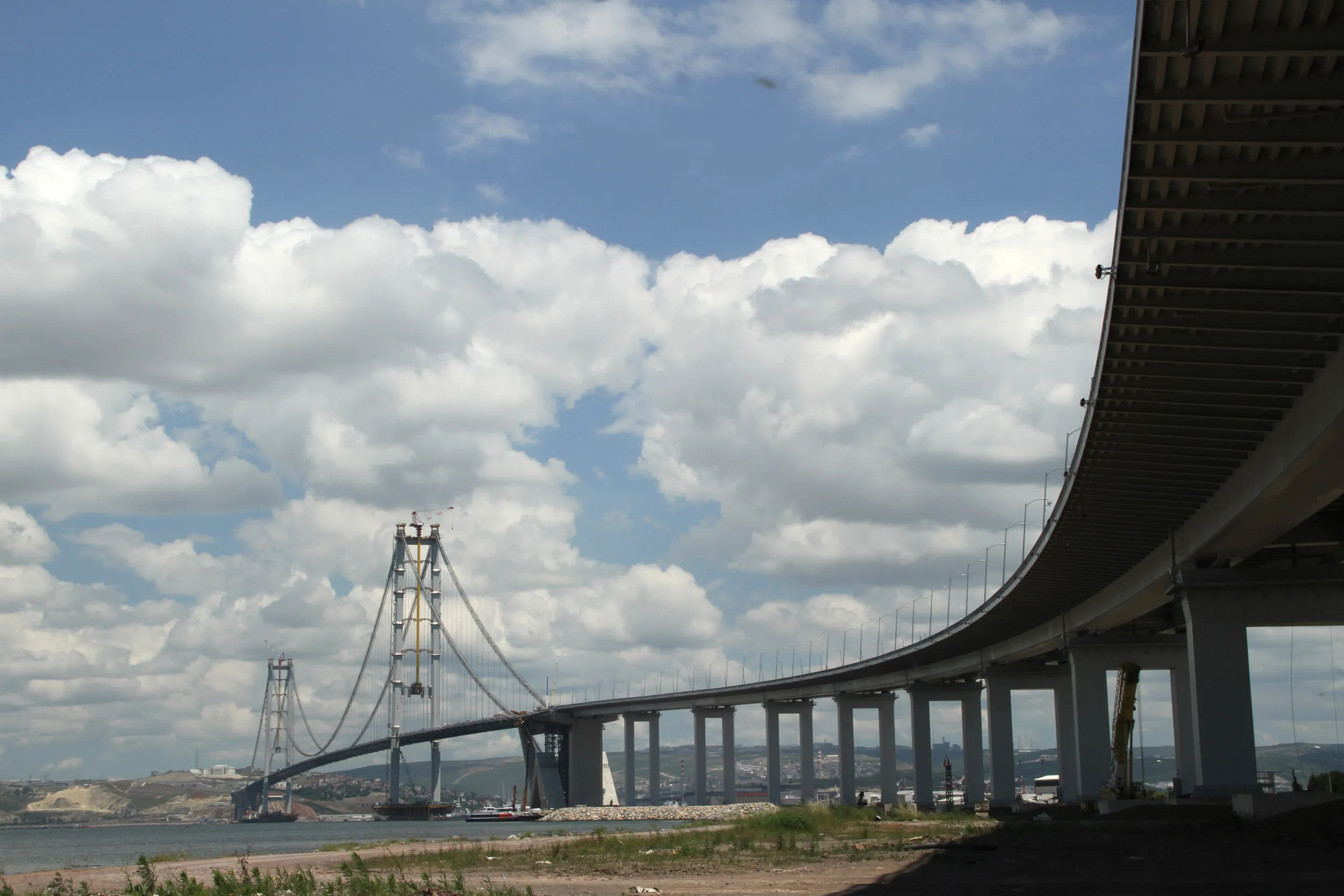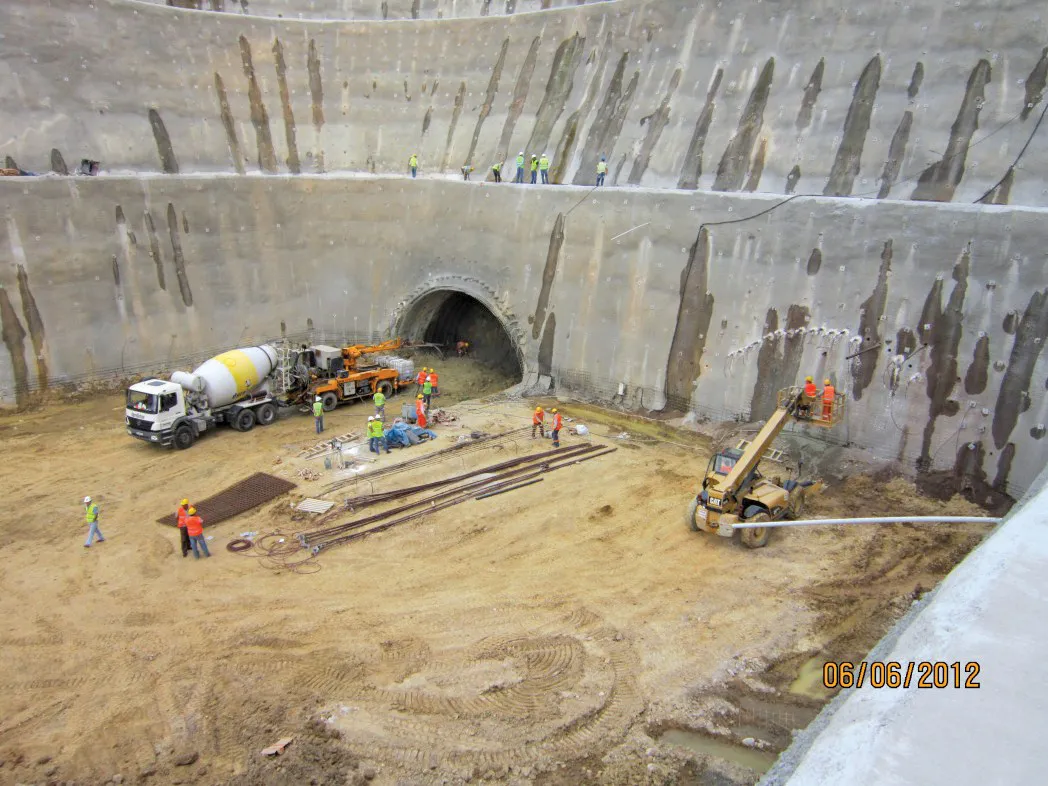Turkey’s new Osman Gazi Bridge has now opened for traffic. This bridge can carry 40,000 vehicles/day, while halving the travel time needed using previous routes. This is a six lane suspension bridge measuring 3km and spanning the Sea of Marmara. Construction has taken 42 months and the structure has been designed to cope with the risk of earthquakes.
The project has been co-ordinated by Japanese construction company IHI, with Siemens handling the role of electro and mechanical contractor. Siemens has dev
June 30, 2016
Read time: 3 mins

Turkey’s new Osman Gazi Bridge has now opened for traffic. This bridge can carry 40,000 vehicles/day, while halving the travel time needed using previous routes. This is a six lane suspension bridge measuring 3km and spanning the Sea of Marmara. Construction has taken 42 months and the structure has been designed to cope with the risk of earthquakes.
The project has been co-ordinated by Japanese construction company IHI, with1134 Siemens handling the role of electro and mechanical contractor. Siemens has developed, installed and commissioned all the bridge structure and traffic control components and systems. The six-lane bridge with separated maintenance lines is part of a freeway project linking the cities of Istanbul and İzmir in Western Turkey.
The bridge is constructed entirely from steel and with a main span of 1.55km, is suspended 64m above the Sea of Marmara. This lies to the south of Istanbul and is in a region that is prone to earthquakes. The structure had to be fitted with special technology to continuously measure vibration, movement and loads to give alarms to the bridge operators for all abnormal events.
Siemens equipped the bridge the 390 sensors to monitor its condition and raise the alarm in the event of excessive vibration. The sensors continuously measure longitudinal and lateral strain as well as the stress loads on the road sections leading up to the main span. Special GPS sensors fitted to the bridge register oscillations of the bridge piles, while wind and temperature measuring units are also provided.
Changes and potential damage to the bridge are also detected by the sensors, for instance to check the steel structure continuously for corrosion. In the interior chambers of the bridge, in the bridge towers and bridge decks as well as on the sheathed suspension cables, a special system controls and regulates atmospheric humidity, ensuring it remains below 40% to prevent corrosion from the sea air.
The construction of the bridge and the 409km-long highway between Istanbul and İzmir is part of the largest highway project in Turkey to date. The Concessionaire Otoyol Yatirim ve Isletme (3338 Nurol-7135 Özaltin-Maykol-1324 Astaldi-4149 Yüksel-Göcay) has been appointed under the terms of the build-operate-transfer (BOT) contract to plan and operate the new motorway over a period of 22 years. This new six-lane bridge connection will cut the travel time between both cities from eight to four hours.
The project has been co-ordinated by Japanese construction company IHI, with
The bridge is constructed entirely from steel and with a main span of 1.55km, is suspended 64m above the Sea of Marmara. This lies to the south of Istanbul and is in a region that is prone to earthquakes. The structure had to be fitted with special technology to continuously measure vibration, movement and loads to give alarms to the bridge operators for all abnormal events.
Siemens equipped the bridge the 390 sensors to monitor its condition and raise the alarm in the event of excessive vibration. The sensors continuously measure longitudinal and lateral strain as well as the stress loads on the road sections leading up to the main span. Special GPS sensors fitted to the bridge register oscillations of the bridge piles, while wind and temperature measuring units are also provided.
Changes and potential damage to the bridge are also detected by the sensors, for instance to check the steel structure continuously for corrosion. In the interior chambers of the bridge, in the bridge towers and bridge decks as well as on the sheathed suspension cables, a special system controls and regulates atmospheric humidity, ensuring it remains below 40% to prevent corrosion from the sea air.
The construction of the bridge and the 409km-long highway between Istanbul and İzmir is part of the largest highway project in Turkey to date. The Concessionaire Otoyol Yatirim ve Isletme (







